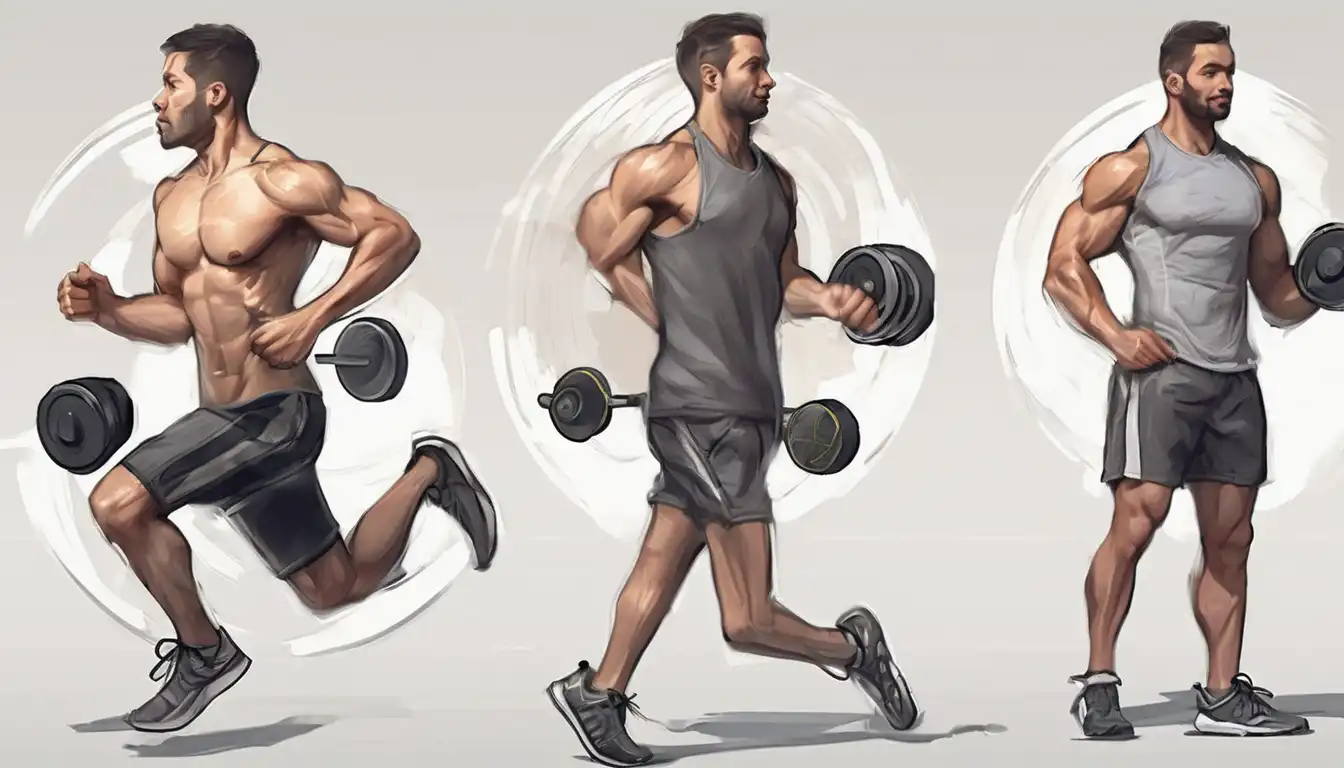Getting Started with Your Fitness Journey
Embarking on a fitness journey can feel overwhelming, but with the right approach, anyone can build a sustainable routine that delivers real results. Whether you're looking to lose weight, build strength, or simply improve your overall health, this comprehensive guide will walk you through every step of creating a fitness plan that works for your lifestyle and goals.
Why Starting a Fitness Routine Matters
Regular exercise offers numerous benefits beyond just physical appearance. Consistent physical activity can boost your energy levels, improve mental health, reduce stress, and lower your risk of chronic diseases. Many beginners find that once they establish a routine, they experience better sleep, increased confidence, and improved overall quality of life. The key is starting with realistic expectations and building gradually.
Assessing Your Current Fitness Level
Before diving into any workout program, it's crucial to understand your starting point. Take an honest assessment of your current fitness level by considering factors like your endurance, strength, flexibility, and any physical limitations. This self-assessment will help you set appropriate goals and avoid injury. Remember that everyone starts somewhere, and your journey is unique to you.
Setting Realistic Fitness Goals
Effective goal-setting is the foundation of any successful fitness routine. Instead of vague aspirations like "get fit," create specific, measurable goals such as "walk 30 minutes daily" or "complete three strength training sessions per week." Break larger goals into smaller milestones to maintain motivation. Consider using the SMART framework (Specific, Measurable, Achievable, Relevant, Time-bound) to structure your objectives.
Choosing the Right Type of Exercise
Different forms of exercise serve different purposes, and the best routine incorporates variety. Here are the main categories to consider:
Cardiovascular Exercise
Cardio workouts improve heart health and endurance. Beginners might start with low-impact options like walking, cycling, or swimming. Aim for 150 minutes of moderate-intensity cardio per week, gradually increasing duration and intensity as your fitness improves.
Strength Training
Building muscle through strength training boosts metabolism and supports joint health. Start with bodyweight exercises like squats, push-ups, and planks before progressing to weights. Focus on proper form rather than heavy lifting to prevent injuries.
Flexibility and Mobility
Incorporating stretching and mobility work helps prevent injuries and improves movement quality. Yoga or simple stretching routines can be excellent additions to your weekly schedule.
Creating Your Weekly Workout Schedule
A balanced weekly schedule might include 3-4 days of cardio, 2-3 days of strength training, and daily flexibility work. Remember to include rest days – they're essential for recovery and progress. Here's a sample beginner schedule:
- Monday: 30-minute walk + full-body strength
- Tuesday: Active recovery (light stretching)
- Wednesday: 25-minute cycling + core work
- Thursday: Rest day
- Friday: 30-minute swim + upper body strength
- Saturday: Active fun (hiking, dancing, sports)
- Sunday: Rest or light yoga
Essential Equipment for Beginners
You don't need an expensive gym membership to get started. Basic equipment might include comfortable workout clothes, supportive shoes, a water bottle, and perhaps a yoga mat. As you progress, consider investing in resistance bands or dumbbells for home workouts.
Proper Form and Technique
Learning correct exercise form is more important than intensity when starting out. Poor technique can lead to injuries that derail your progress. Consider working with a trainer initially or using reputable online resources to learn proper form for basic exercises.
Nutrition and Hydration Basics
Exercise alone isn't enough – proper nutrition fuels your workouts and supports recovery. Focus on balanced meals with lean proteins, complex carbohydrates, healthy fats, and plenty of fruits and vegetables. Hydration is equally important; drink water throughout the day, especially before, during, and after workouts.
Listening to Your Body
Learn to distinguish between normal workout discomfort and pain that signals potential injury. Muscle soreness is normal, especially when starting out, but sharp or persistent pain requires attention. Rest when needed and don't push through pain that feels wrong.
Staying Motivated and Consistent
Maintaining motivation is one of the biggest challenges beginners face. Try these strategies to stay on track:
- Find activities you genuinely enjoy
- Work out with a friend for accountability
- Track your progress with a journal or app
- Celebrate small victories along the way
- Mix up your routine to prevent boredom
Overcoming Common Obstacles
Time constraints, lack of energy, and life disruptions can derail even the best intentions. Plan for these challenges by having backup options like shorter workouts or home exercise routines. Remember that consistency over perfection is what builds lasting habits.
Progressing Safely
As you become more comfortable with your routine, gradually increase intensity, duration, or frequency. The 10% rule – increasing workout volume by no more than 10% per week – helps prevent overtraining and injuries. Pay attention to how your body responds and adjust accordingly.
When to Seek Professional Guidance
If you have pre-existing health conditions, significant weight to lose, or specific performance goals, consulting with healthcare providers or fitness professionals can provide personalized guidance tailored to your needs.
Building a Lifelong Habit
The ultimate goal isn't just starting a fitness routine but making it a sustainable part of your lifestyle. Focus on building habits rather than pursuing quick fixes. With patience, consistency, and the right approach, fitness can become something you look forward to rather than dread.
Remember that every expert was once a beginner. The most important step is simply starting – and then continuing, one day at a time. Your future self will thank you for the investment in your health and wellbeing.
